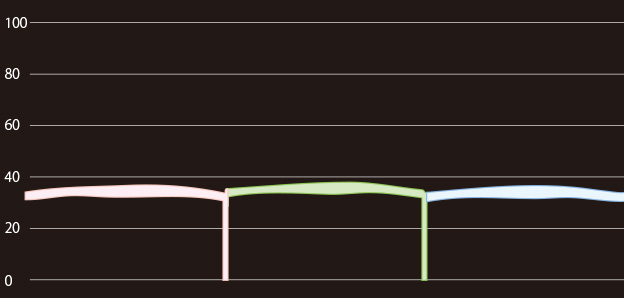To record N-Log footage, connect the camera to a digital recorder that supports 10-bit video. Use a Type C HDMI cable (available from third-party suppliers) and be sure the camera is off before connecting or disconnecting the cable.
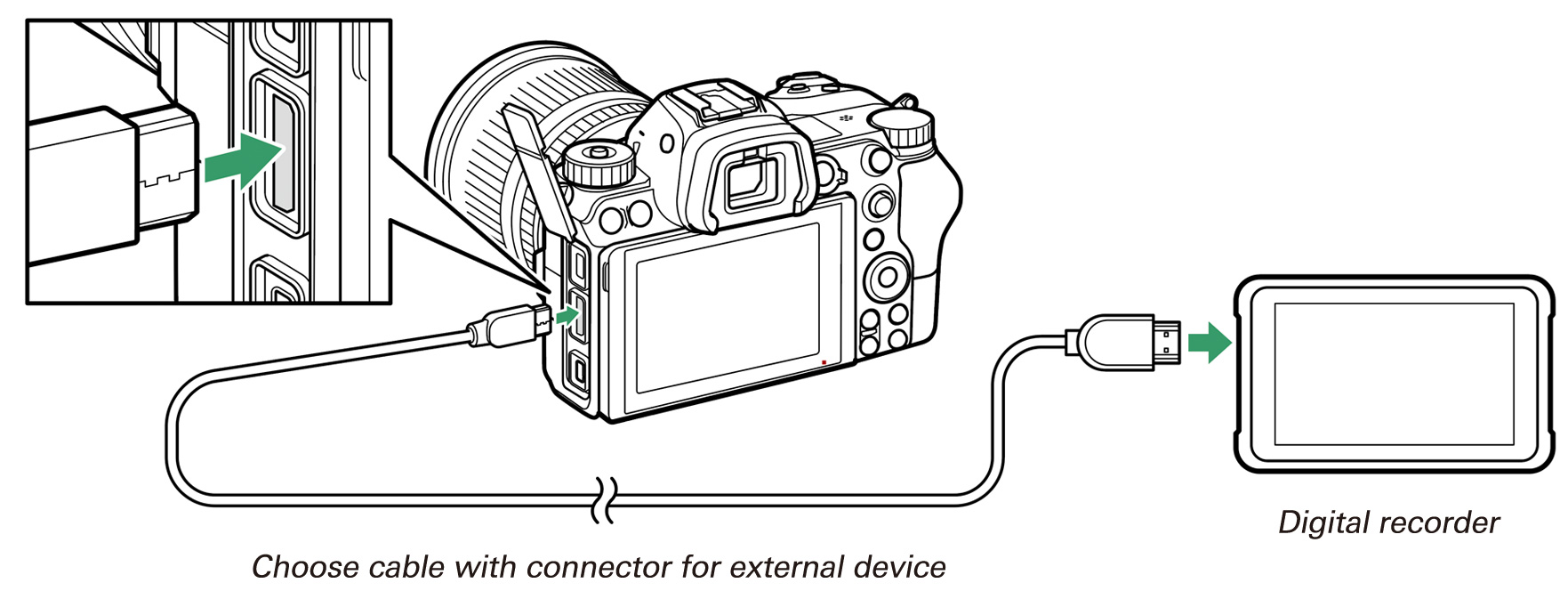
To film N-Log footage:
1 Select 10 bit for Output data depth.
N-Log footage can only be recorded at a bit depth of 10 bits. In the setup menu, select 10 bit for HDMI > Advanced > Output data depth.
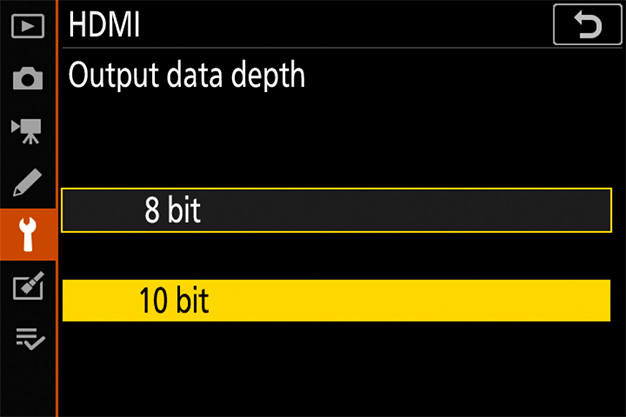
2 Enable N-Log recording.
Return to HDMI > Advanced in the setup menu and select On (cannot record to card) for N-Log setting.
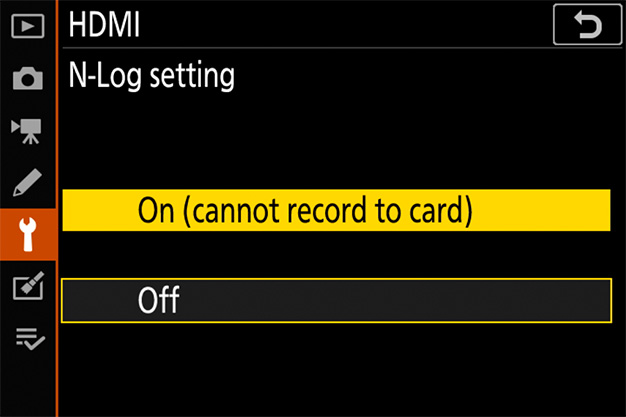
3 Configure the recorder for HDMI input.
For details, see the documentation supplied with the device.
4 Start filming.
If On is selected for HDMI > Advanced > External recording control in the camera setup menu and the recorder supports the Atomos Open Protocol, you can start and stop recording using the camera movie-record button (see this section); otherwise, you will need to enable recording on the external device. Note that although N-Log footage is recorded only to the external device, not to the camera memory card, contrast can be enhanced for display on the camera during recording (see this section).
When the camera standby timer expires, the monitor will turn off and HDMI output will end. We recommend that you choose No limit or a time longer than the anticipated recording time for Custom Setting c3 (Power off delay) > Standby timer.
While N-Log recording is in effect, Picture Controls cannot be used, ISO sensitivity cannot be set lower than ISO 800 or to values of from Hi 0.3 to Hi 2, Active D-Lighting and high ISO noise reduction turn off automatically, and photographs will not be taken when the shutter-release button is pressed all the way down. The camera may also have trouble focusing; this is not a malfunction. The subject will be displayed in the monitor, not the viewfinder, regardless of the display mode selected, and flicker or noise may be visible in the display.
Note that because HDMI output is not available when the camera is connected to devices running SnapBridge or Camera Control Pro 2, these applications cannot be used for N-Log recording.
Note the following when choosing a frame size and frame rate for N-Log recording:
| Frame size/frame rate | Notes |
|---|---|
| 3840 × 2160 30p |
|
| 3840 × 2160 25p | |
| 3840 × 2160 24p | |
| 1920 × 1080 120p | N-Log recording not available. |
| 1920 × 1080 100p | |
| 1920 × 1080 60p | No restrictions apply. |
| 1920 × 1080 50p | |
| 1920 × 1080 30p | |
| 1920 × 1080 25p | |
| 1920 × 1080 24p | |
| 1920 × 1080 slow-mo | N-Log recording not available. |
Click here for the image optimized for small screens. (JPG 115KB).
If On is selected for HDMI > Advanced > External recording control in the camera setup menu and the recorder supports the Atomos Open Protocol, you can start and stop recording using the camera movie-record button(for information on whether your recorder supports the Atomos Open Protocol, contact the manufacturer). The camera displays in movie live view and during movie recording. During recording, check the recorder and recorder display to ensure that footage is being saved to the device.
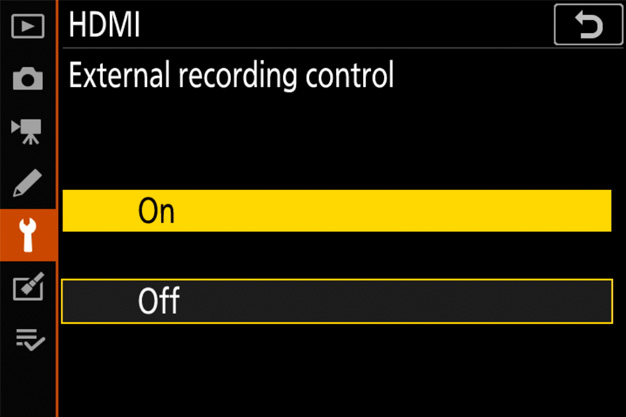
Although it increases the range of tones recorded, N-Log reduces the contrast between colors. If desired, the display of colors in the camera monitor can be simplified to enhance contrast for ease of viewing by selecting On for HDMI > Advanced > View assist in the camera setup menu.
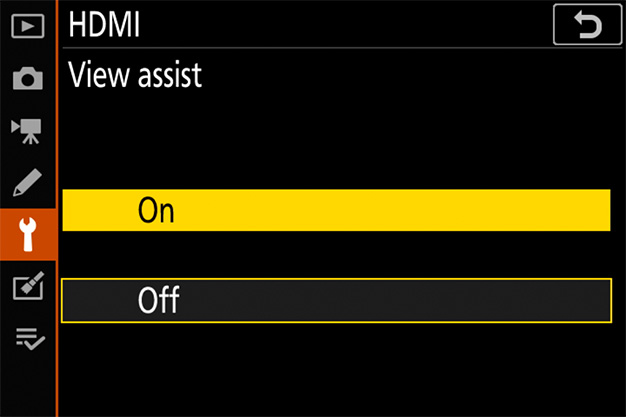
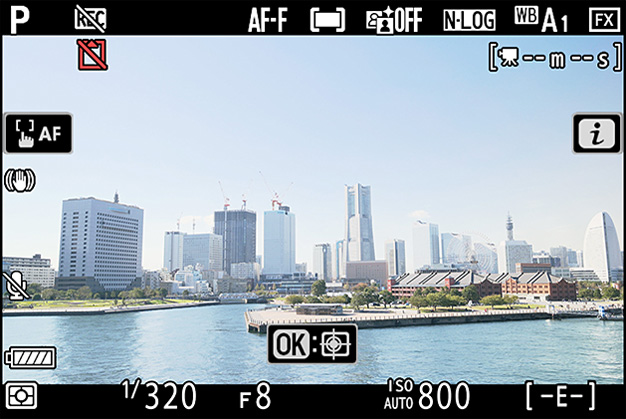
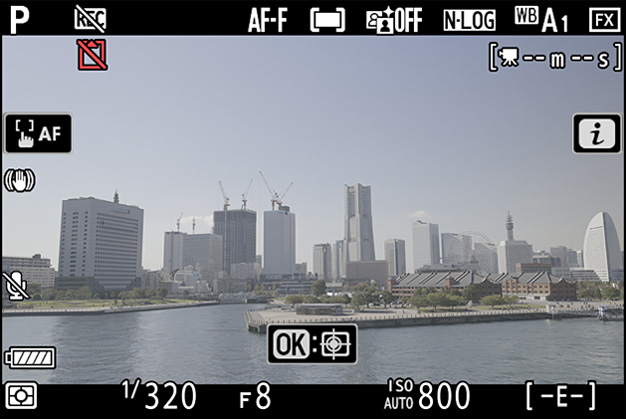
View assist applies to the display in the camera monitor only and has no effect on the footage actually recorded.
If your recorder features a waveform display, you can film an 18% gray color chart and adjust exposure for a video signal level (IRE) of 35%, equivalent to a 10-bit code value of around 372.
